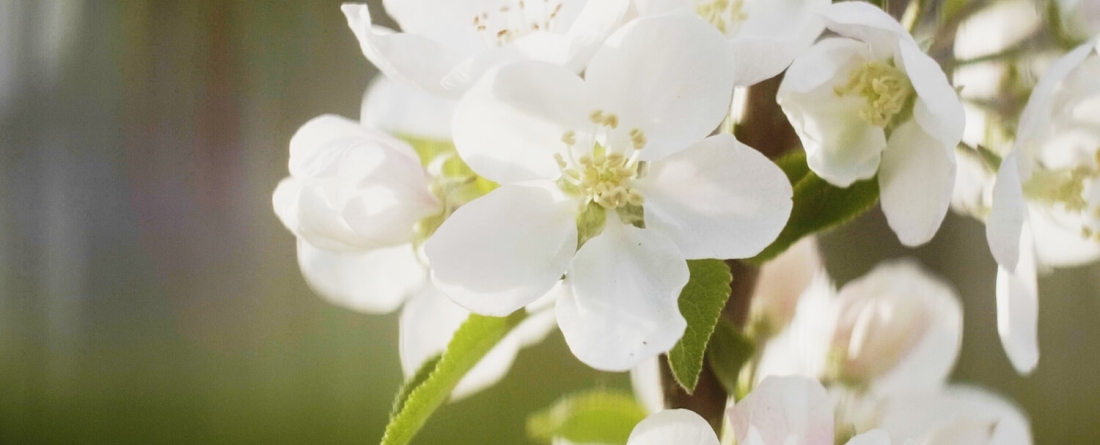
In the midst of a global health pandemic, there’s a range of mental health challenges facing the world.
As founder of the organization Evolving Minds, Anthony Sartori ’18 is working to break down barriers to mental healthcare to make it accessible for all. During this time, that means pivoting to deliver services virtually.
Sartori launched the organization in 2019 and it has since become a member of the Do Good Institute’s Scale Your Impact program, which provides customized support and financial resources to University of Maryland students and alumni looking to extend their reach and create a larger social impact.
SPP talked to Sartori about strategies for mindfulness in the current climate and how Evolving Minds is adapting to pursue its mission: empowering youth to create a culture of care.
- Adapt when necessary
At the core of Evolving Minds’ mission is the C.A.R.E. model, which involves community, advocacy, resilience and empowerment. At this stage, that entails offering trainings for nontraditional methods of mental healthcare, such as Mindful Living for Professionals, a 10-week program the organization recently piloted for teachers in Baltimore City Schools.
While the programs are designed to be delivered in-person, Sartori says the organization’s mission won’t stop during a time of social distancing. Evolving Minds is now offering a weekly mindfulness livestream, in addition to programs that can be delivered virtually.
“We are in the process of really amping up and creating all of these different opportunities for practicing wellness skills,” Sartori says.
Those working with students during this time can benefit from adapting as well. “If faculty are comfortable with it, being vulnerable and honest within their classroom online [is important] because it isn't just business as normal,” he explains.
Sartori also suggests creating space before or after class to allow students to share highs and lows of the week or even practice mindfulness exercises.
- Focus on mental health
In the current climate, there’s an increased focus on mental health and mindfulness. “We are socially distanced physically, but I feel like before the virus, we were still socially distant from each other,” Sartori says. “The physical component really brought to light so much of the underlying challenges that, a lot of times, can be unnoticed when you are constantly surrounded by others.”
While the pandemic may be bringing new attention to these issues, Sartori says the mental health crisis is continuing. “On campus, the mental health crisis has been ongoing,” he says. “This is only the next phase.”
- Reframe the situation
For those who are able to social distance, Sartori suggests using some healthy reframes to focus on the positives. “For example, imagine the impact that this moment is having on the Earth,” he explains. “Consumption has decreased globally, so there's a healing that's going on collectively, although there is an existential threat.”
This technique helps not only to provide comfort, but to clarify the true nature of the situation. “What's kept me afloat is this practice of mindfulness: coming back to the present moment over and over again,” Sartori describes. “The mind starts to create those stories, which are just stories, not the reality of the present moment.”
- Engage in mindfulness
Sartori suggests using social distancing as an opportunity to learn more about the practice of mindfulness. “Within the mindfulness and meditation community, there's this idea of going on retreats,” he says. “So for a week, you'd go on a silent retreat where you'd be practicing mindfulness and meditation all day and you'd really be with yourself.”
In addition to using social distancing as a silent retreat, Sartori suggests being aware of screen-time and limiting it when necessary.
It’s also important, Sartori says, to remember that not everyone is in a position to social distance. For more vulnerable communities, Evolving Minds is working to develop new trainings, both online and in-person for the future, to continue providing access to nontraditional methods of mental healthcare. Moving forward, Sartori hopes the organization will inspire hundreds, and eventually thousands, of Evolving Minds communities run by youth who are passionate about improving mental health.
“We want to remove barriers of cost, stigma and approachability and place it in the hands of peers,” he says. “There's a lot of research that shows peer advocates and peer support are really powerful.”
To learn more about Evolving Minds and practicing mindfulness, tune into the organization’s Facebook Wellness Livestream on Tursdays at 7 p.m. EST.
If you or someone you know has a mental illness, is struggling emotionally, or has concerns about their mental health, view resources.
